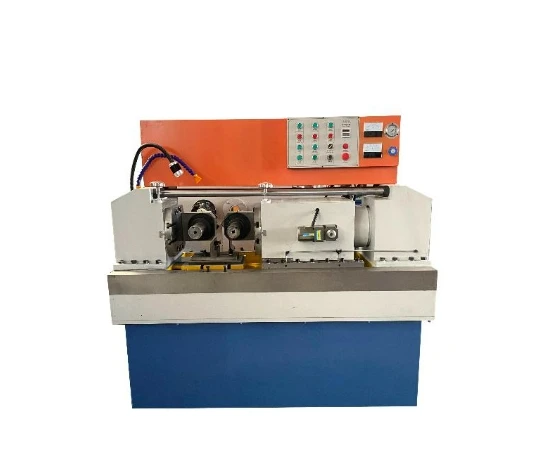
-
 Afrikaans
Afrikaans -
 Albanian
Albanian -
 Amharic
Amharic -
 Arabic
Arabic -
 Armenian
Armenian -
 Azerbaijani
Azerbaijani -
 Basque
Basque -
 Belarusian
Belarusian -
 Bengali
Bengali -
 Bosnian
Bosnian -
 Bulgarian
Bulgarian -
 Catalan
Catalan -
 Cebuano
Cebuano -
 Corsican
Corsican -
 Croatian
Croatian -
 Czech
Czech -
 Danish
Danish -
 Dutch
Dutch -
 English
English -
 Esperanto
Esperanto -
 Estonian
Estonian -
 Finnish
Finnish -
 French
French -
 Frisian
Frisian -
 Galician
Galician -
 Georgian
Georgian -
 German
German -
 Greek
Greek -
 Gujarati
Gujarati -
 Haitian Creole
Haitian Creole -
 hausa
hausa -
 hawaiian
hawaiian -
 Hebrew
Hebrew -
 Hindi
Hindi -
 Miao
Miao -
 Hungarian
Hungarian -
 Icelandic
Icelandic -
 igbo
igbo -
 Indonesian
Indonesian -
 irish
irish -
 Italian
Italian -
 Japanese
Japanese -
 Javanese
Javanese -
 Kannada
Kannada -
 kazakh
kazakh -
 Khmer
Khmer -
 Rwandese
Rwandese -
 Korean
Korean -
 Kurdish
Kurdish -
 Kyrgyz
Kyrgyz -
 Lao
Lao -
 Latin
Latin -
 Latvian
Latvian -
 Lithuanian
Lithuanian -
 Luxembourgish
Luxembourgish -
 Macedonian
Macedonian -
 Malgashi
Malgashi -
 Malay
Malay -
 Malayalam
Malayalam -
 Maltese
Maltese -
 Maori
Maori -
 Marathi
Marathi -
 Mongolian
Mongolian -
 Myanmar
Myanmar -
 Nepali
Nepali -
 Norwegian
Norwegian -
 Norwegian
Norwegian -
 Occitan
Occitan -
 Pashto
Pashto -
 Persian
Persian -
 Polish
Polish -
 Portuguese
Portuguese -
 Punjabi
Punjabi -
 Romanian
Romanian -
 Russian
Russian -
 Samoan
Samoan -
 Scottish Gaelic
Scottish Gaelic -
 Serbian
Serbian -
 Sesotho
Sesotho -
 Shona
Shona -
 Sindhi
Sindhi -
 Sinhala
Sinhala -
 Slovak
Slovak -
 Slovenian
Slovenian -
 Somali
Somali -
 Spanish
Spanish -
 Sundanese
Sundanese -
 Swahili
Swahili -
 Swedish
Swedish -
 Tagalog
Tagalog -
 Tajik
Tajik -
 Tamil
Tamil -
 Tatar
Tatar -
 Telugu
Telugu -
 Thai
Thai -
 Turkish
Turkish -
 Turkmen
Turkmen -
 Ukrainian
Ukrainian -
 Urdu
Urdu -
 Uighur
Uighur -
 Uzbek
Uzbek -
 Vietnamese
Vietnamese -
 Welsh
Welsh -
 Bantu
Bantu -
 Yiddish
Yiddish -
 Yoruba
Yoruba -
 Zulu
Zulu
Top Manufacturers of Thread Rolling Tools and Their Innovative Solutions
Exploring the Importance of Thread Rolling Tool Companies
Thread rolling is a crucial manufacturing process used to create high-strength threads and fasteners without the need for cutting. This method has become increasingly popular due to its efficiency and ability to produce durable components. At the heart of this process are thread rolling tool companies, which design and manufacture specialized tools to facilitate the thread rolling operation. Understanding the significance of these companies and their contributions to various industries can help appreciate the intricacies involved in modern manufacturing.
The Role of Thread Rolling Tool Companies
Thread rolling tool companies specialize in creating tools that form threads by rolling a blank piece of material, typically metal, between two or three die surfaces. This process displaces the material rather than cutting it, leading to stronger threads with improved fatigue resistance. Companies in this sector provide a variety of tools such as thread rolling dies, machines, and attachments, each tailored to suit specific applications and materials.
These companies cater to a wide range of industries, including automotive, aerospace, construction, and consumer goods. They understand that different industries have unique demands and requirements, which is why they often customize their products. For instance, aerospace components require precise tolerances and high-performance materials, while automotive applications may emphasize cost-effectiveness and speed of production. As a result, many thread rolling tool companies invest heavily in research and development to innovate and enhance their offerings, ensuring that they meet the evolving needs of their clients.
Benefits of Thread Rolling
The advantages of using thread rolling tools designed by specialized companies are numerous. First and foremost, the thread rolling process is often more efficient than traditional cutting methods. It can produce parts at a faster rate while reducing waste, which is a critical factor in the highly competitive market. Additionally, since the material is not removed but rather reshaped, the resulting threads have enhanced tensile strength, making them ideal for high-load applications.
thread rolling tool companies

Moreover, thread rolling is a cold working process, which means that the material is not heated during the manufacturing process. This helps to maintain the mechanical properties of the material, resulting in a final product that is not only strong but also minimizes the risk of defects. Thread rolling tools are also versatile; they can work with various materials, including steel, aluminum, and certain alloys, making them suitable for a wide range of applications.
Technological Advancements in Thread Rolling
As technology advances, so does the field of thread rolling. Many thread rolling tool companies integrate automation and precision engineering into their manufacturing processes. Computer-aided design (CAD) and computer numerical control (CNC) technologies significantly enhance the precision and complexity of the tools produced. These advancements allow manufacturers to create more intricate thread designs, improving the performance and capabilities of the fasteners and components they produce.
Moreover, industries are increasingly looking for sustainable practices. Thread rolling tool companies are responding by developing tools and processes that reduce environmental impact. This includes minimizing waste during production and optimizing energy usage in their machines. Sustainability has become a significant selling point in today's market, and companies that adapt will likely thrive.
Conclusion
In conclusion, thread rolling tool companies play a vital role in modern manufacturing by providing essential tools that enhance productivity, strength, and efficiency in the production of threaded components. As industries continue to evolve, these companies must stay at the forefront of technology and sustainability practices to meet the growing demands of their clients. Their expertise not only contributes to the success of various sectors but also drives innovation in manufacturing processes, ensuring they remain competitive in a rapidly changing landscape.
